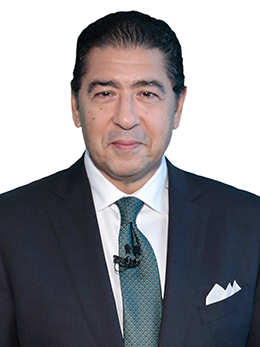Few lenders in the Middle East and north Africa, or beyond, can lay claim to the kind of performance enjoyed by Egypt’s Commercial International Bank (CIB). In The Banker’s Top 100 Arab Banks ranking for 2018, CIB achieved the highest return on assets and return on capital, while coming in among the top five lenders in terms of its cost-to-income ratio. This success is not new; the bank has outperformed most domestic and regional market growth indicators for a number of years.
Under the auspices of Hisham Ezz Al-Arab, its managing director and chairman since 2002, CIB has emerged as one of the region’s most forward-thinking and innovative banks. When revolution struck Egypt in 2011, for instance, CIB pursued a countercyclical strategy and expanded its footprint across the country. Today, with a stable and reform-minded government at the helm in Cairo, the bank is reaping the rewards of this decision.
Embracing innovation
Similarly, the bank is likely to benefit from its ongoing investments in technology. With an eye on the longer term, Mr Ezz Al-Arab has placed innovation at the heart of CIB’s growth strategy under a wide-reaching digital transformation programme. This is seeing, among other things, CIB delve into blockchain’s potential to transform the financial services industry.
“Over the next five years I expect blockchain technology will transform the way business is done,” says Mr Ezz Al-Arab.
To this end, CIB became the first bank in north Africa to join the global R3 blockchain consortium. It was also one of 39 lenders within this group to trial a global blockchain powered know your customer utility with the potential to significantly ease costly and time-consuming compliance processes for corporate customers.
Beyond distributed ledger technology, Mr Ezz Al-Arab has trained his sights on the use of big data analytics. This is giving CIB an edge when it comes to Egypt’s efforts to formalise the economy by serving the unbanked. “For financial inclusion the name of the game is transaction costs. If you can reduce the transaction cost to zero or a fraction of a cent then it will be easier and more efficient. What we are trying to do is use big data to reduce the transaction cost,” says Mr Ezz Al-Arab.
Indeed, the use of big data is helping CIB to gain efficiencies across all of its customer segments. “At present, offering a loan or increasing the credit limit on a card is a paper process, which is time consuming. We want to use big data to make this more efficient. By aggregating [a customer’s] financial history – debts, income, spending habits and so on – we can determine their excess debt capacity,” says Mr Ezz Al-Arab.
Big data is also assisting the bank to improve customer retention. CIB has developed a data science model that simulates a customer’s journey with the bank and identifies individuals prone to churn, enabling the bank to intervene with an appropriate retention offering. Modelling by CIB suggests that over the course of a full year this will help to retain an additional 33,000 customers leading to an E£29m ($1.62m) increase in net profits.
Detecting fraud
Beyond customer engagement, CIB is harnessing its investments in big data for compliance purposes. A new anomaly detection model has been developed that is capable of detecting fraud and risk incidents with an accuracy level of greater than 90%. The global accuracy rate for models of a similar type is between 70% and 75%, according to research from the bank.
These innovations, among others, are good examples of what Mr Ezz Al-Arab describes as the bank’s ‘competitive metabolism’. Few other lenders in the Egyptian market – or indeed the wider region – are engaging with technology, and big data analytics in particular, to the same extent. Having successfully steered CIB through years of political turmoil and sub-optimal growth, Mr Ezz Al-Arab is now readying the bank for a global revolution in digital finance. These investments, and others, are likely to keep the lender at the top end of The Banker’s league tables for the foreseeable future.












